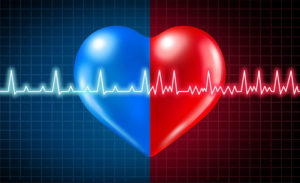A rise and fall in your body’s blood pressure is something to be taken seriously. This can happen throughout the day, depending on your activity and physical state. When you have high blood pressure, you are at risk of other life-threatening medical problems. High blood pressure can also occur with other health conditions, such as arthritis.
You can manage your health better by knowing the causes of various conditions. Continue reading to find out more about the causes of high blood pressure.
What Is High Blood Pressure?
High blood pressure, or hypertension, is abnormally high systolic and diastolic blood pressure. These two numbers indicate the pressure in the arteries, the vessels carrying blood from the heart to the rest of the body. Systolic blood pressure is the first or higher number. It measures the pressure when the heart beats. Meanwhile, diastolic pressure, the second number, measures the pressure between beats, when the heart rests. Your primary care provider can determine if you have high blood pressure based on blood pressure readings that check these numbers.
This condition usually has no severe symptoms, particularly in the early stages. You may feel headaches, nosebleeds, or shortness of breath when your blood pressure becomes severely high.
Types and Causes of High Blood Pressure
There are two types of high blood pressure, depending on the cause. Your family primary care provider may examine your medical history to determine what causes your hypertension.
● Primary Hypertension
Most adults suffer from primary or essential hypertension. This type of high blood pressure has no definite cause and gradually develops over time.
● Secondary Hypertension
Secondary hypertension appears more suddenly. This type of hypertension occurs because of another underlying medical condition in the heart, kidneys, or endocrine system. Examples are arthritis, thyroid problems, problems in blood vessels, obstructive sleep apnea, and more.
Risk Factors Causing High Blood Pressure
Some factors increase the likelihood of having high blood pressure. Although these do not directly cause hypertension, you should monitor your blood pressure closely if you are associated with these risk factors:
● Age and Gender
Hypertension can affect people at any age. However, the likelihood of acquiring it increases as you get older. Although less common, children may also suffer from hypertension. Poor lifestyle habits and kidney or heart problems can contribute to hypertension in the younger population.
● Family History and Race
Genetics can play a significant role in developing high blood pressure. Hypertension tends to run in families. According to studies, people of African descent may also develop the condition earlier than others. They are also more likely to develop serious complications such as heart attack, stroke, and kidney failure.
● Physical Activity
Physical inactivity is generally associated with a higher heart rate. It causes the heart to work harder and produce more intense contractions, leading to hypertension.
● Weight
Increased weight means the body needs more blood supply and oxygen. When there is increased blood flow in the arteries, the pressure against the artery walls may also increase.
● Diet
The nutrients in your diet, such as sodium and potassium, can affect your blood pressure. Too much sodium or salt can promote fluid retention in your body, resulting in increased blood pressure. Low potassium levels due to improper diet or dehydration can lead to sodium buildup in the blood.
● Use of Tobacco and Drinking Alcohol
The use of tobacco products does not only temporarily raise your body’s blood pressure immediately, it can also cause the narrowing of artery walls, leading to permanent damage. Alcohol consumption can also lead to heart damage, especially if the intake is more than one to two drinks a day.
● Stress
High levels of stress are associated with a temporary spike in blood pressure. Stress-related habits or coping mechanisms such as binge eating, smoking, or drinking alcohol can also cause a permanent increase in blood pressure.
● Pregnancy
Pregnant women may suffer from gestational hypertension or pregnancy-induced hypertension, or preeclampsia. This condition can pose serious risks before, during, and after birth.
● Use of Certain Medications
Some birth control pills, pain relievers, cold medications, decongestants, and prescription drugs may affect the body’s blood pressure. Illegal drugs such as cocaine and amphetamines can also cause hypertension.
Treatment For High Blood Pressure and Arthritis in Wellington, FL
High blood pressure affects your overall health in many ways. It should be diagnosed and treated as soon as possible. To get the best medical treatment for hypertension, you should always listen to the experts. Primary care providers are the trusted and first-hand primary care providers who can help diagnose and treat your high blood pressure.
If you are looking for a clinic to help you with your high blood pressure, we at Advanced Medical Clinic offer medical services in Wellington and Royal Palm Beach, Florida. Our skilled family medicine providers and staff will surely accommodate your concerns, from diagnosis to treatment.
Contact us today to learn more about how we can help. You may call our friendly staff at (561) 434-1935 or fill out this online request form. We look forward to serving you.



